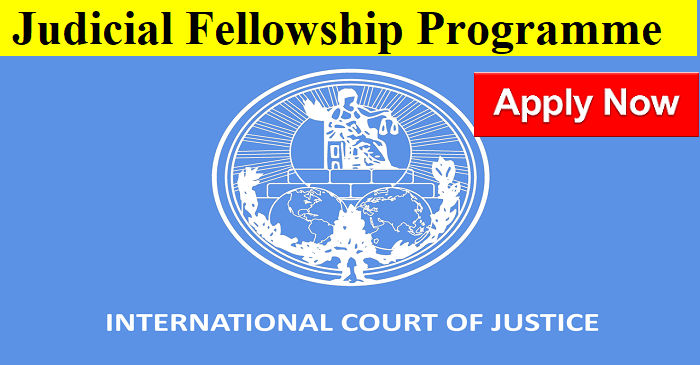
The International Court of Justice (ICJ) invites applications from eligible universities around the world for the 2022-2023 Judicial Fellowship Programme (formerly known as the University Traineeship Programme).
The Programme was established in 1999 to enable recent law graduates to gain professional experience working at the ICJ. The Fellowship Programme aims to improve participants’ understanding of public international law and of the Court’s procedures by actively involving them in the work of the Court and allowing them to build on their experience under the supervision of a judge.
The Judicial Fellows work on a full-time basis under the supervision of a Member of the Court and alongside the primary legal assistant of the judge. The Judicial Fellows can expect to attend the Court’s public hearings, research and write memorandums on legal questions or factual aspects of the cases pending before the Court, and perform other duties assigned by their judge. The duration of the Fellowship is approximately ten months, from early September to June of the following year.
The Court normally accepts up to 15 participants per year from various universities across the world.
Trust Fund of the Judicial Fellowship Programme
In accordance with resolution 75/129, a trust fund for the Judicial Fellowship Programme was established by the UN Secretary-General in April 2021.
Starting with the 2022 intake and selection process, the trust fund will grant fellowship awards to selected candidates who are nationals of developing countries from universities based in developing countries, thereby improving and guaranteeing the geographic and linguistic diversity of the participants in the Programme.
Eligible universities in developing countries interested in applying for funding via the trust fund to sponsor their nominees can do so by clicking the link below to start the application process.
Application deadline
The deadline for the submission of applications is 13 February 2022. The Court is expected to reach its final decision on the selection of candidates by April 2022. Nominating universities will be notified accordingly.
Submission of applications and selection of candidates
While it is possible to nominate a single candidate, the Court encourages universities to propose more than one nominee. Universities are strongly encouraged to limit nominations to candidates who have shown excellent results in their legal studies and who have demonstrated an interest in public international law through their studies, publications and/or work experience. The official languages of the Court are English and French, and participants must have excellent reading, writing and oral skills in at least one of them. A working knowledge of the second official language is an asset.
To be eligible, candidates should be 31 years of age or younger at the time the programme begins. This requirement may be waived in special circumstances. In making its selection, the Court seeks candidates of diverse nationalities.
The Court does not accept applications from individuals.
How to nominate candidates
All universities interested in nominating candidates for the Programme are invited to start the application procedure by clicking the link below.



